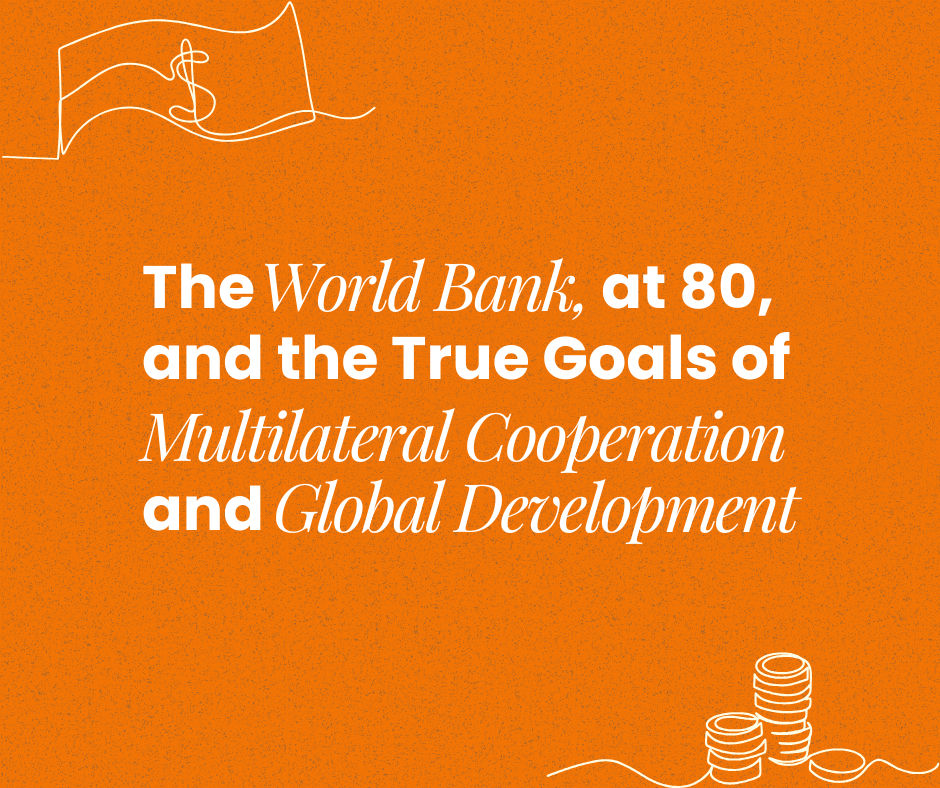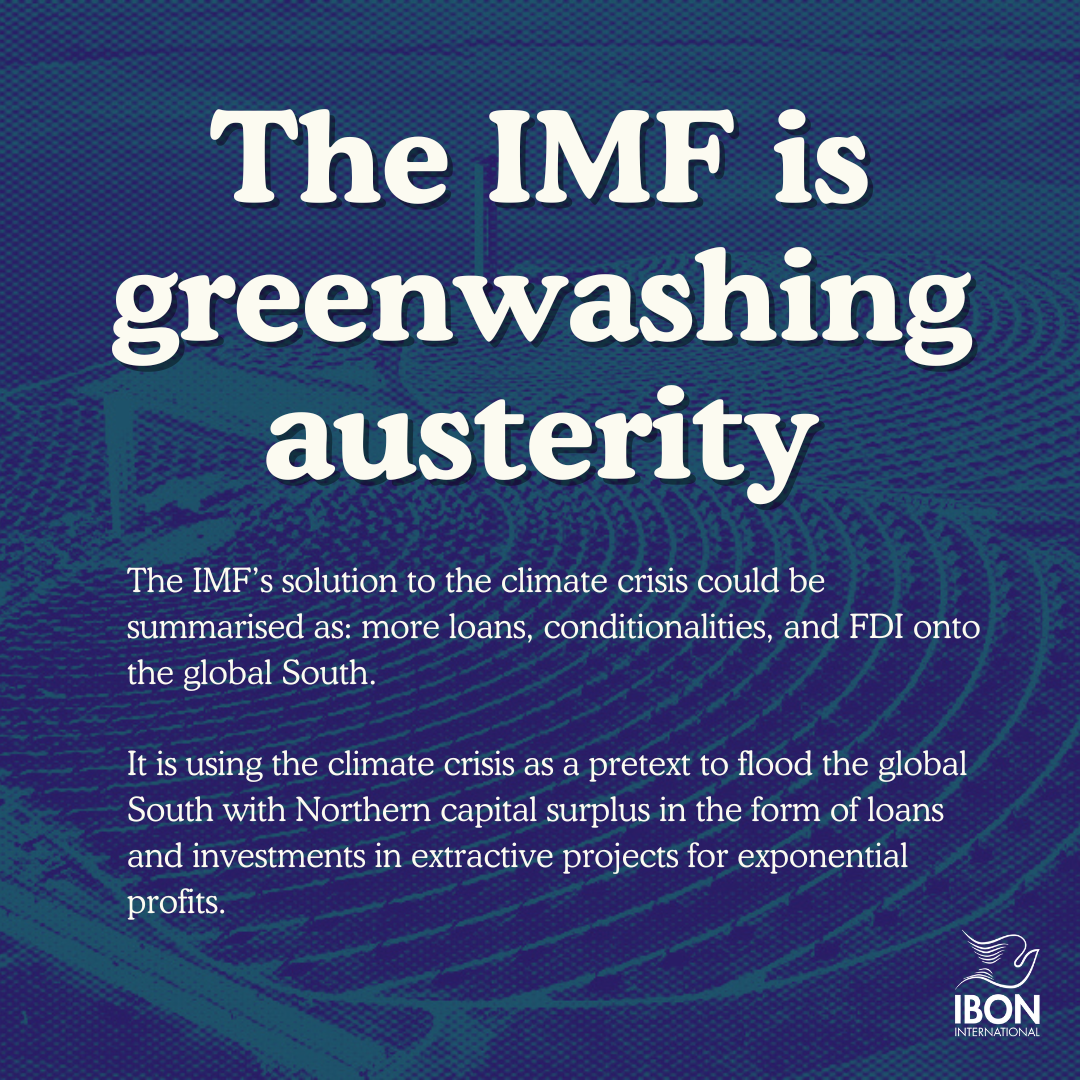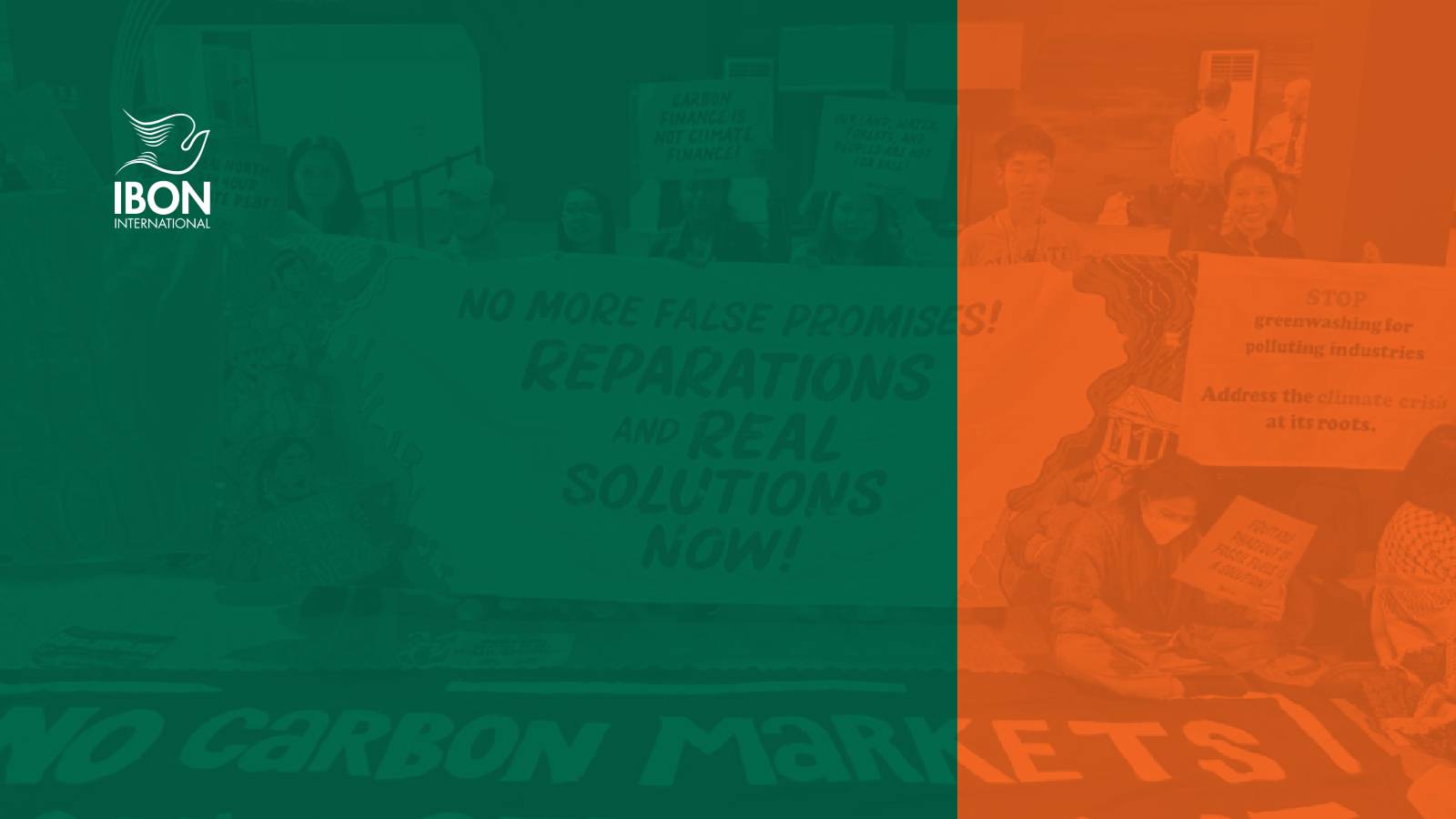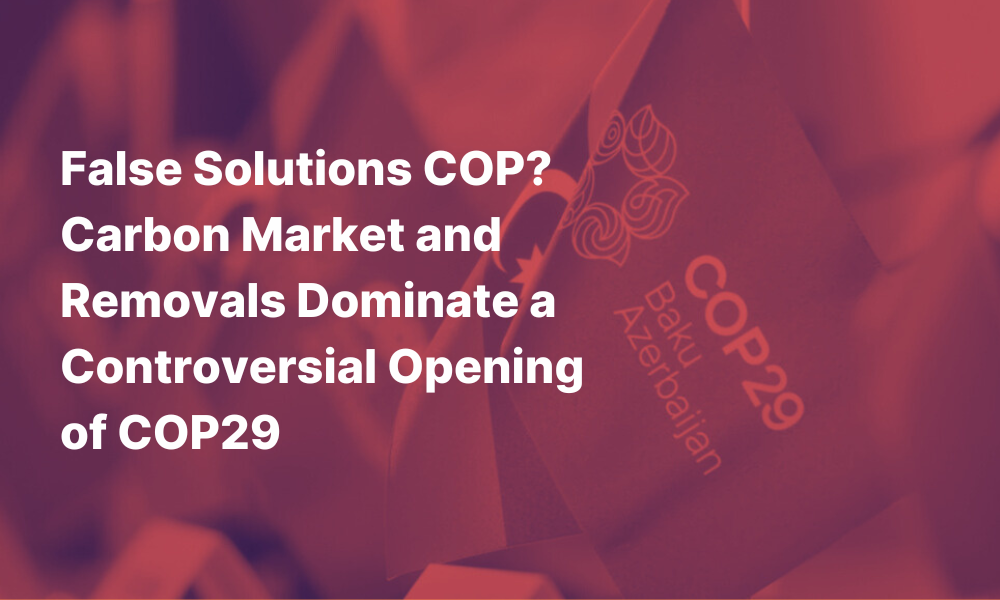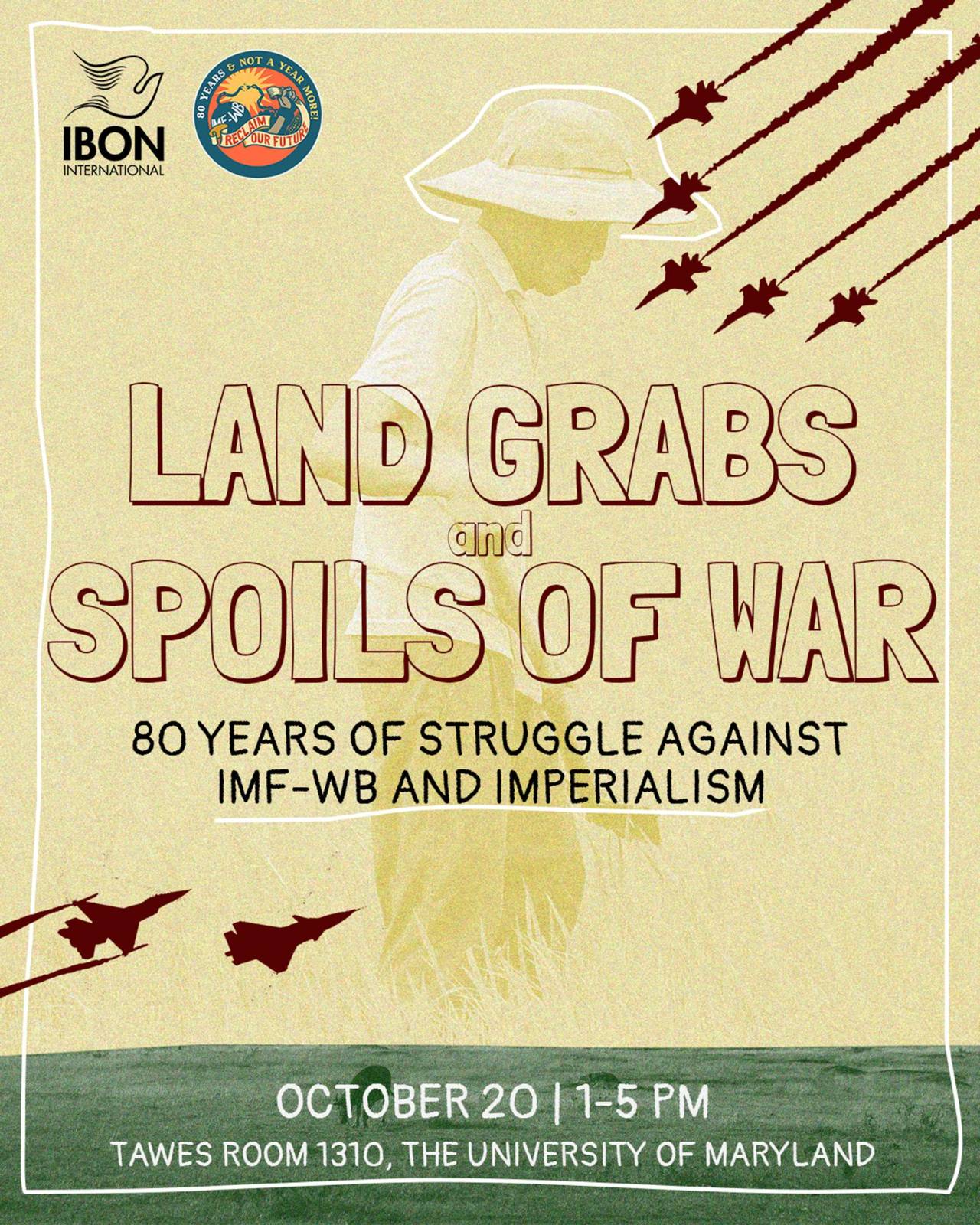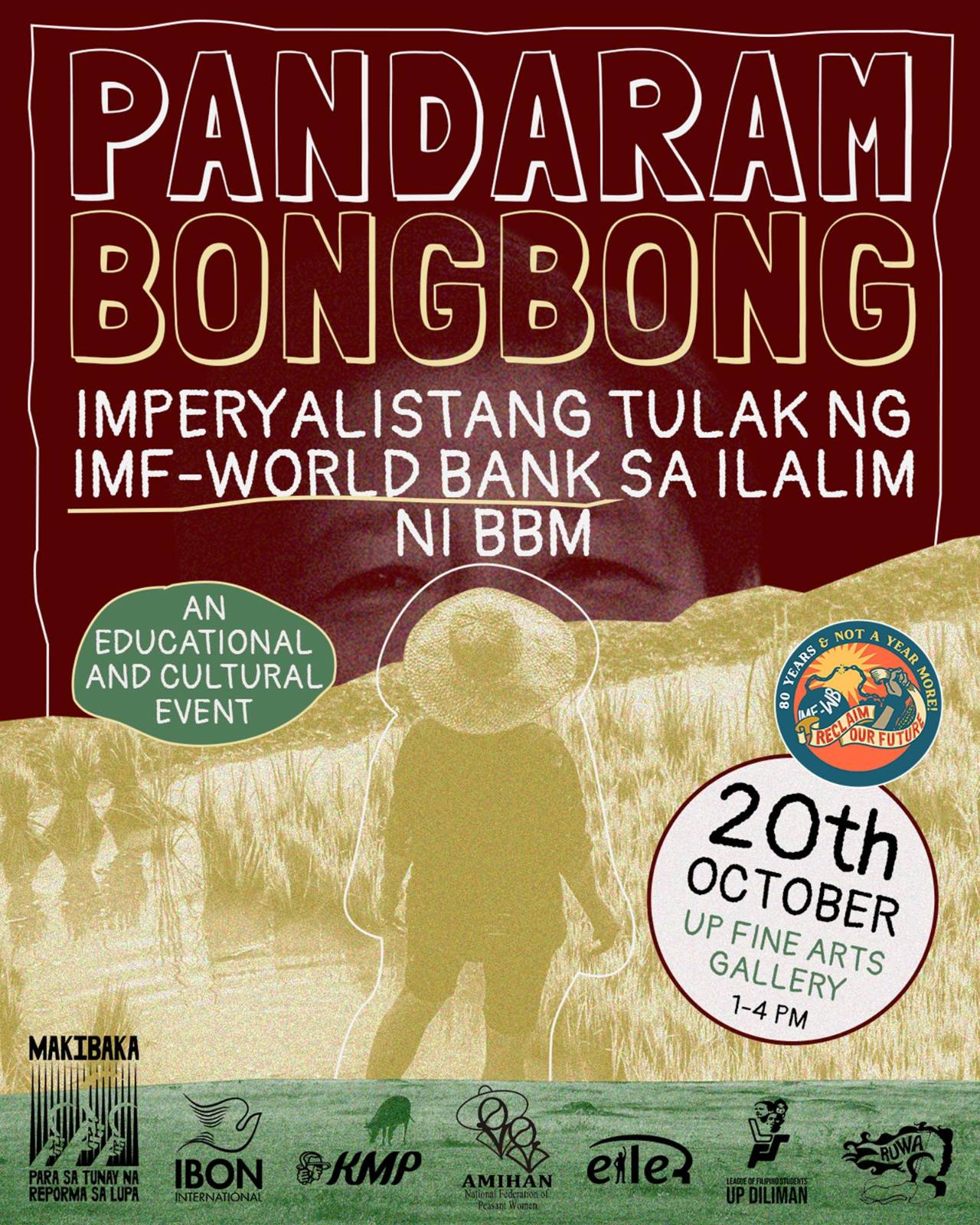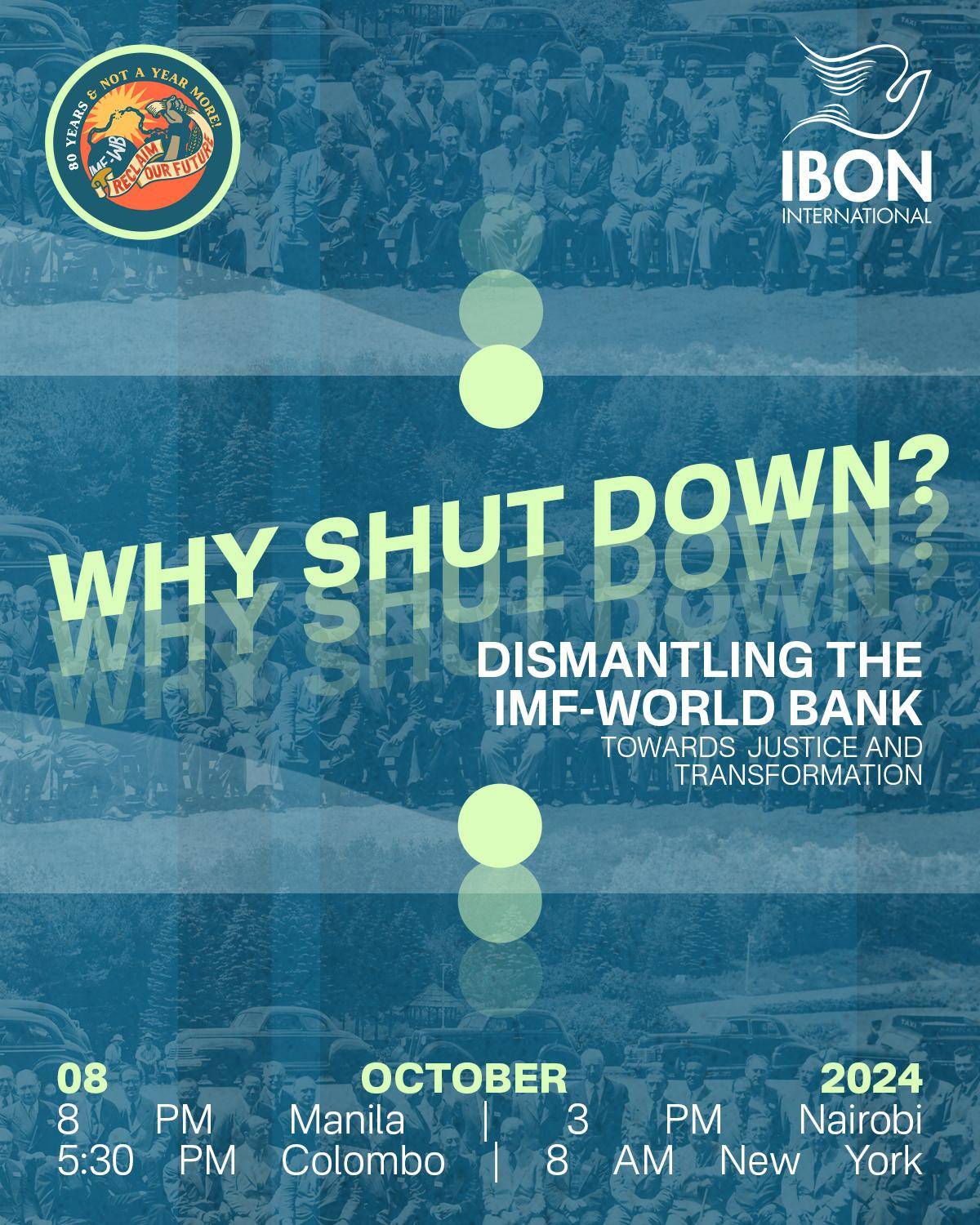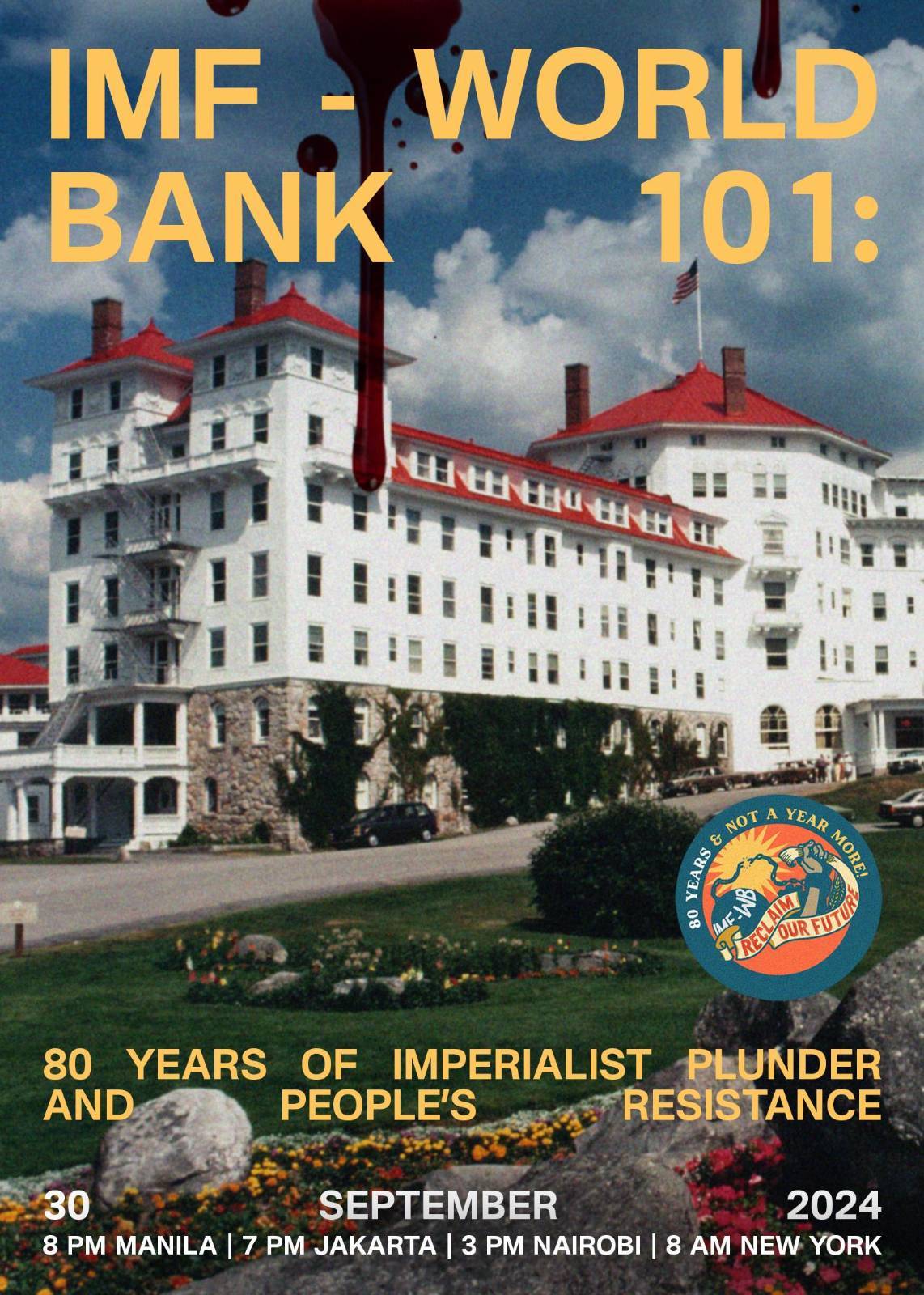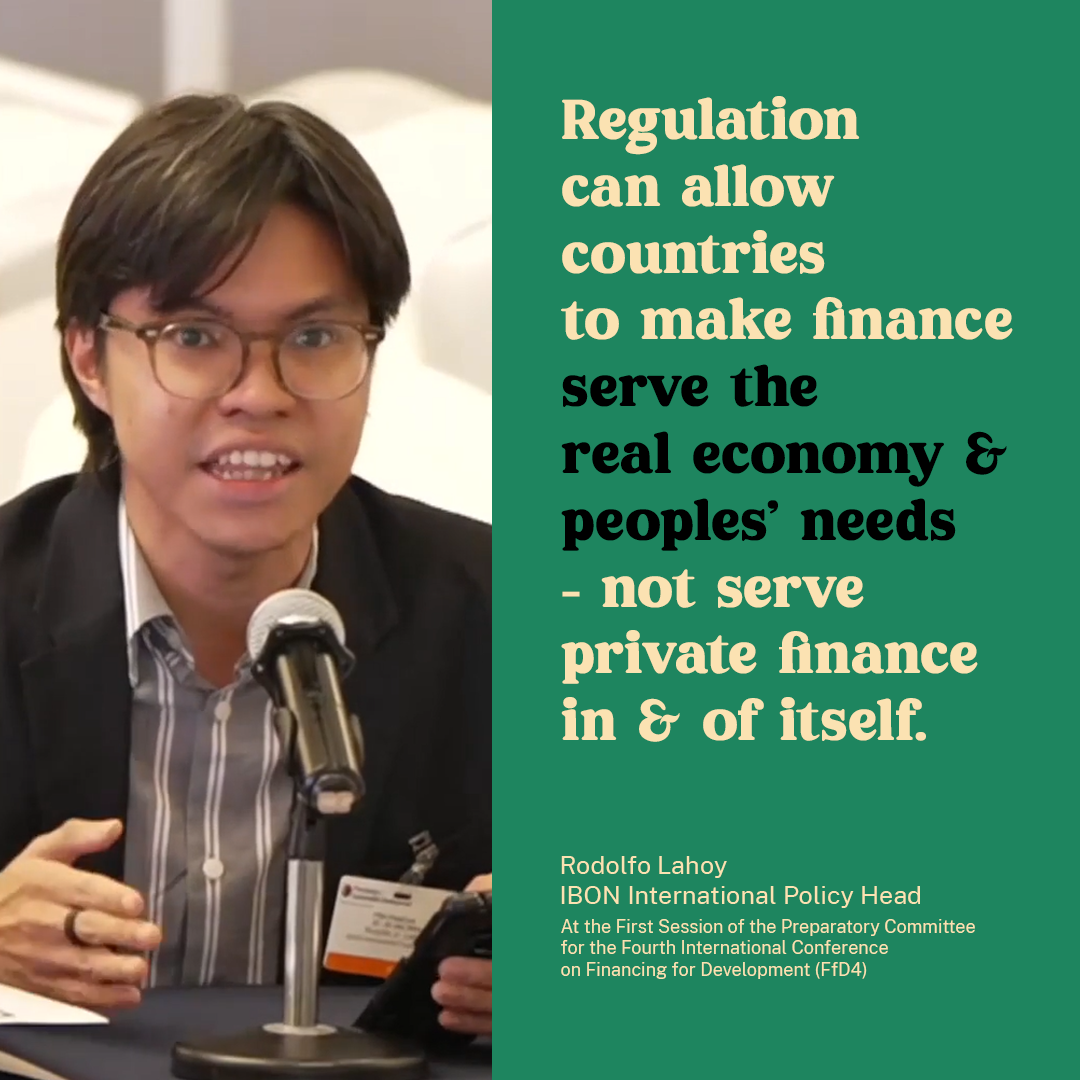This year, the International Monetary Fund (IMF) and the World Bank Group (WBG) will mark the 80th year of the 1944 Bretton Woods Conference, which established these institutions. As they hold their Spring Meetings on 17 to 19 April 2024, IBON International challenges these institutions’ immunities that hinder accountability mechanisms and an evaluation of their destructive neoliberal model.
Despite rhetoric of reform, the WBG’s “evolution” process continues to firmly grasp its private capital dogma. The Bank has recently released a preliminary draft of a “playbook” slated for discussion at the Spring Meetings. The WBG’s emphasis to mobilise private capital “to create a world free of poverty on a livable planet” will continue to put countries in debt, and impose harmful neoliberal conditionalities.
We assert that the World Bank’s “reform” is an attempt to restore its legitimacy amid crises and the exposure of the failure of the neoliberal model. It also aims to cover its history mired in rights violations, plunder especially of the Global South, and even unconscionable support for military dictatorships.
Moreover, we express concern that the WBG’s “reform” is a way for the Bank to lay claim over a new frontier for capital: climate finance. Last year, the WBG boasted USD 38.6 billion in financing for climate-related projects, making it the largest source of climate finance. But the majority of this financing are loans with conditionalities that exacerbate debt, and divert scarce resources of Southern countries away from critical climate measures.
The WBG’s assertion of the centrality of private capital in advancing countries’ climate goals rings hollow, as the primary aim of private capital is the pursuit of profit, often through ventures deemed “bankable” yet are extractive in nature. This includes continued financing of fossil fuels and false climate ‘solutions’ such as carbon markets and unproven technologies.
We reiterate the demand for the IMF-WBG’s accountability for reinforcing an extractive economic system that has concentrated wealth into fewer hands and driven today’s climate crisis. We also join social movements, especially from the Global South, in their calls to disentangle from the IMF-WBG’s neocolonial influence and the monopoly capitalist model. Moving away from the IMF-WBG’s dictates would create conditions to realise people’s rights, sovereignty, and development. #

